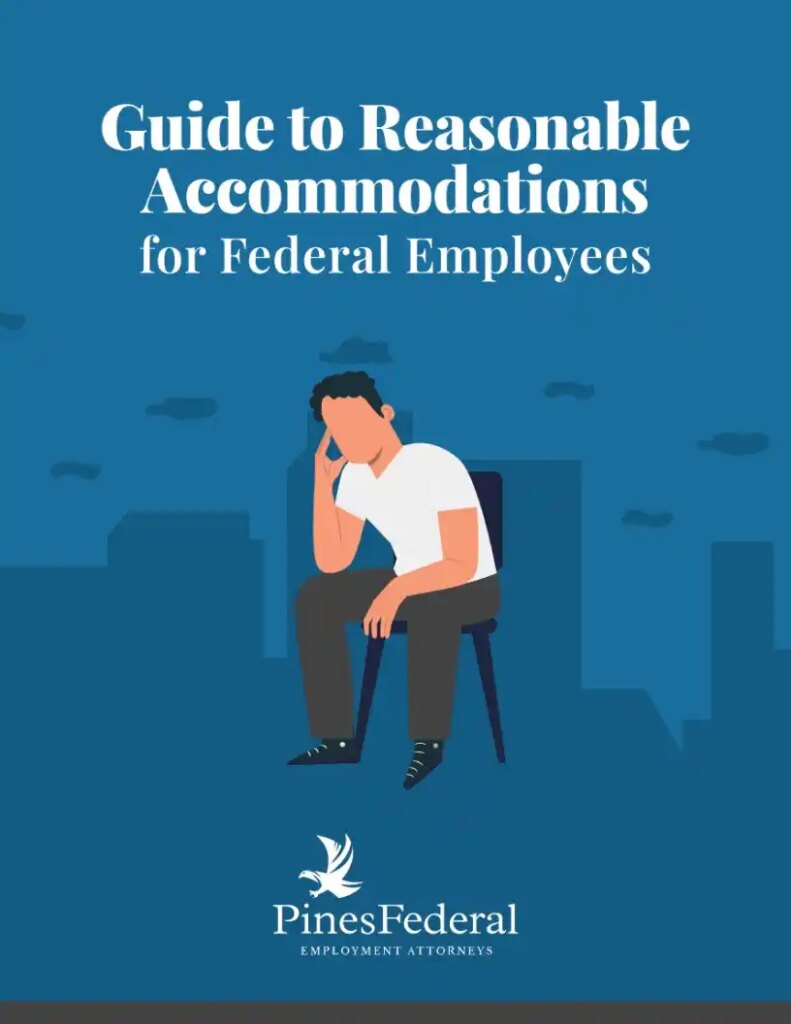
Migraine headaches are a serious health problem affecting almost 50 million Americans across the country. As any migraine sufferer knows, the condition is incredibly unpredictable.
Individuals who suffer from migraines experience a dizzying range of symptoms, including severe pain, nausea, and sensitivity to light and sound. Your work suffers, your colleagues notice, and your world feels like it’s in a perpetual state of disarray.
However, the good news is that federal law requires employers to provide workplace accommodations for victims of migraines.
Read on to learn more about the laws supporting work accommodations for people with migraines. Our federal employee accommodations lawyers will also go through reasonable accommodations for migraines, as well as the ways that an attorney can help you.
Learn how we can assist you by calling (800) 801-0598 or filling out our online form today.
Are Migraines a Disability?
Generally, yes. The Americans with Disabilities Act’s (ADA) definition of disability is “a physical or mental impairment that substantially limits one or more major life activities” of an individual.
Major life activities include but are not limited to:
- Walking,
- Seeing,
- Hearing,
- Speaking,
- Breathing,
- Learning, and
- Working.
The ADA’s definition of disability also incorporates individuals who have a record of an impairment, as well as those who are regarded as having an impairment.
Are Migraines Covered Under the ADA?
Given the ADA’s broad and sweeping language, the vast majority of migraine sufferers fall under the act’s understanding of disability. Almost any migraine sufferer would agree that their migraines affect activities such as working, thinking, seeing, or walking.
Given that migraines are covered by the ADA, your next step will be to request accommodation. To get reasonable accommodations for migraines, it’s essential to follow the guidelines set by your employer or organization.
Put together a formal written request detailing the accommodations you need and how they will help you perform your job better. Don’t forget to send it to your supervisor or human resources representative. This request is your ticket to a better work experience that works for both you and your employer.
Examples of Migraine-Related Reasonable Accommodations
As you may already know, reasonable accommodations are adjustments or modifications that allow individuals with disabilities to perform their essential job functions. The ADA requires employers to provide these accommodations as long as doing so does not cause an undue hardship on the business.
So what are some potential accommodation options for someone with migraines?
Reasonable accommodation examples include:
- Work Schedule Changes. By allowing employees to work around their migraine patterns, they may be able to avoid triggering symptoms and perform their job duties more effectively. This could involve modifying start and end times or providing longer breaks throughout the day.
- Environmental Changes. Migraines are often jump-started by certain types of light and noise. So employing overhead lighting, installing desk lamps with adjustable lighting, or creating quiet spaces where employees can retreat can all be life savers.
- Flexible Leave. Flexible leave policies are another valuable tool for employees with migraines. With flexible leave, employees can obtain occasional time off to manage their condition, as well as the mental energy needed to get their migraines under control.
How Do I Prove My Case for Reasonable Accommodations?
First, establish the foundation of your request. To prove your case, you need to provide medical proof that your migraines are a disability under the ADA via the Rehabilitation Act of 1973. A note from your doctor probably won’t suffice. You need a comprehensive medical evaluation detailing the frequency, severity, and impact of your migraines on your work performance. Make your request unassailable.
Next, identify specific adjustments. Don’t leave decision-makers guessing. Be specific about the accommodations you need. Is it a flexible schedule? Working from home? Show how these changes will enable you to perform your job effectively, despite your migraines. Remember, this is a collaborative dance—be open to alternatives and engage in an interactive dialogue with your employer.
Third, be persistent. The road to reasonable accommodations can be long and winding. Be prepared for setbacks, but don’t let them define your journey. Stay persistent and patient, embracing each challenge as an opportunity to learn and grow.
Finally, seek help. An experienced federal employment attorney can be the ally you need for success, especially when you’re up against a difficult employer.
Contact a Federal Employment Attorney For Help Obtaining Reasonable Accommodations for Your Migraines
Navigating the labyrinth of federal employment law can be daunting. At Pines Federal, our chief objective is to champion the cause of federal employees entangled in workplace predicaments, including reasonable accommodation matters.
Our legal maestros are especially adept at navigating the labyrinth of migraine-related reasonable accommodation requests, including the ever-elusive remote work arrangements. You can count on our firm to do everything in its power to get you the accommodation you deserve.
Ready to start your journey toward getting the help you need? Discover how Pines Federal can be your workplace defenders today. Reach out online or call (800) 801-0598 to arrange a consultation.
[DOWNLOAD] Reasonable Accommodations for Federal Employees
